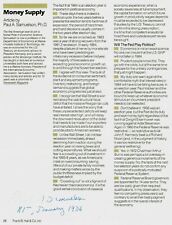
A new joint study from Cornell University and University of California-Berkeley says that fuels produced from biomass are uneconomical as they use much more energy in their creation than the resulting ethanol or biodiesel generates. “There is just no energy benefit to using plant biomass for liquid fuel,” said study author and Cornell researcher David Pimentel. “These strategies are not sustainable.”
The study, appearing in Natural Resources Research, entailed a detailed analysis of the energy input-yield ratios of producing ethanol from corn, switch grass and wood biomass as well as for producing biodiesel from soybean and sunflower plants. The researchers considered such factors as the energy used in producing the crop (production of pesticides and fertilizer, running farm machinery and irrigating, grinding and transporting the crop) and in fermenting/distilling the ethanol from the water mix.
- Corn requires 29 percent more fossil energy than the fuel produced.
- Switch grass requires 45 percent more fossil energy than the fuel produced.
- Wood biomass requires 57 percent more fossil energy than the fuel produced.
- Soybean plants requires 27 percent more fossil energy than the fuel produced.
- Sunflower plants requires 118 percent more fossil energy than the fuel produced.
The researchers acknowledged that finding alternative fuel sources was of great importance but said that bio-fuels were not the answer. “The United State desperately needs a liquid fuel replacement for oil in the near future,” says Pimentel, “but producing ethanol or biodiesel from plant biomass is going down the wrong road, because you use more energy to produce these fuels than you get out from the combustion of these products.”
While bio-fuels may not be the answer to the looming specter of decreasing oil production, Pimentel does advocate the use of burning biomass to produce thermal energy (to heat homes, for example). In closing, Pimentel said the U.S. should focus its efforts on producing electrical energy from photovoltaic cells, wind power and burning biomass and producing fuel from hydrogen conversion. “Ethanol production in the United States does not benefit the nation’s energy security, its agriculture, economy or the environment.”
Ref: Natural Resources Research (Vol. 14:1, 65-76)
Source: Media release – Cornell University


















Comments are closed.